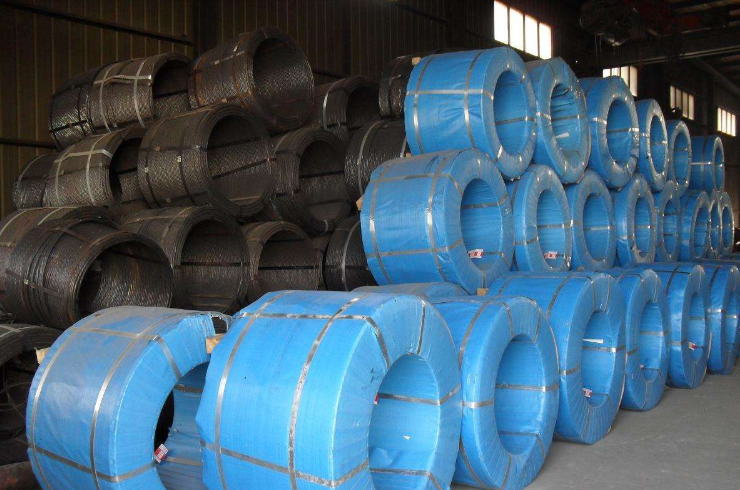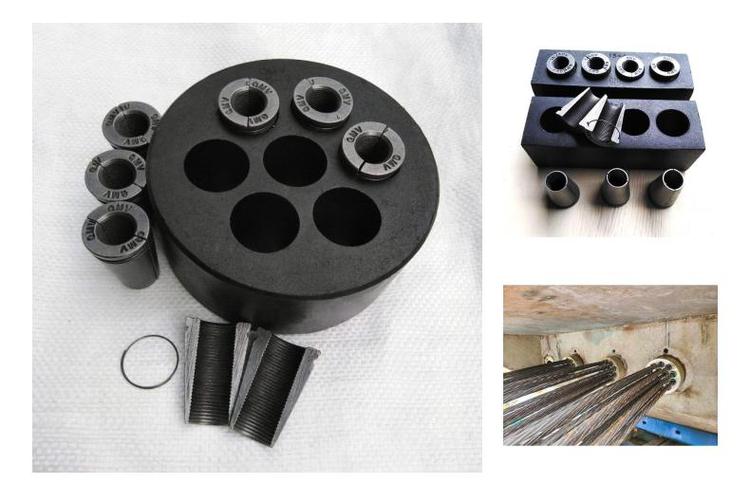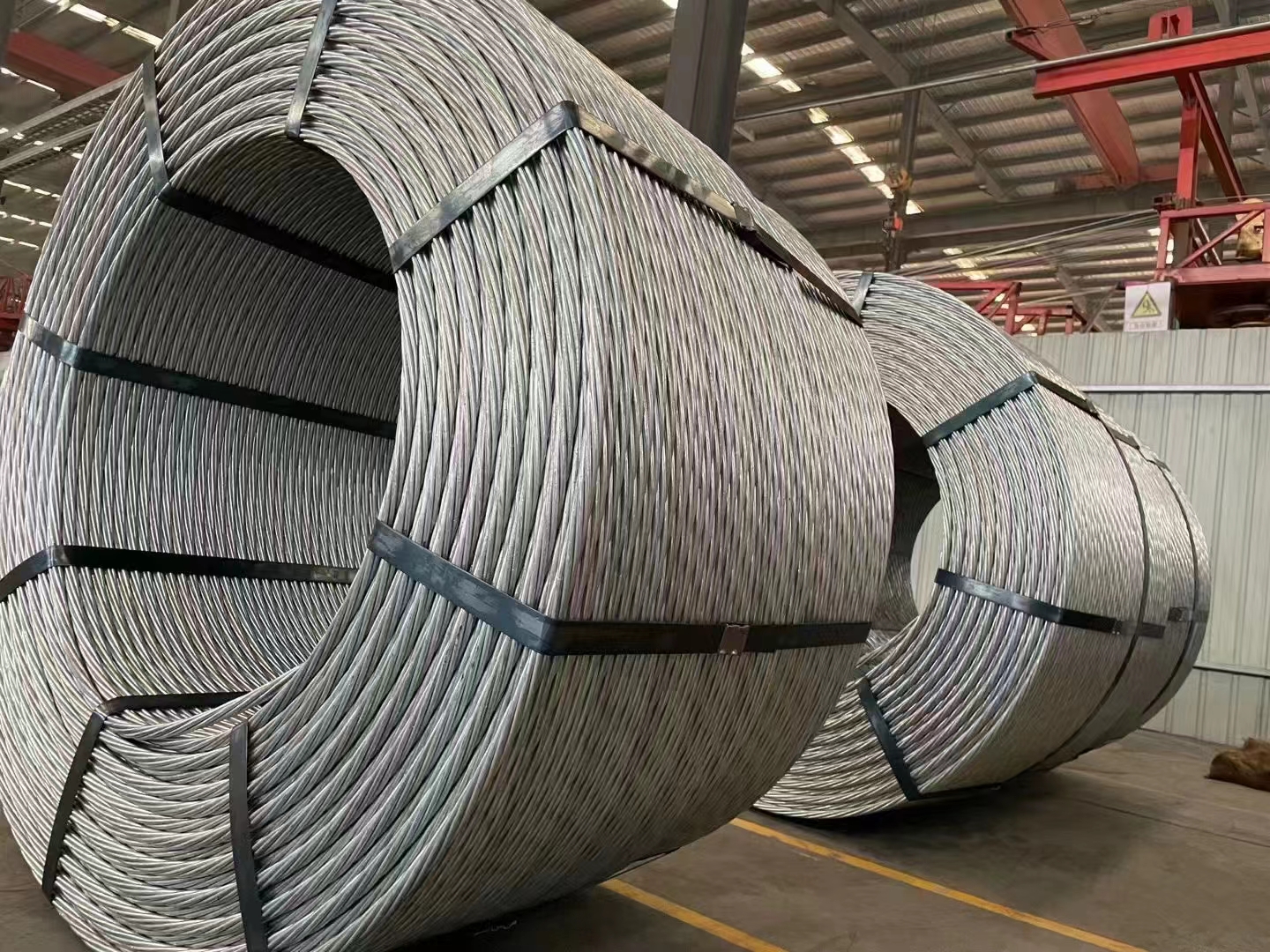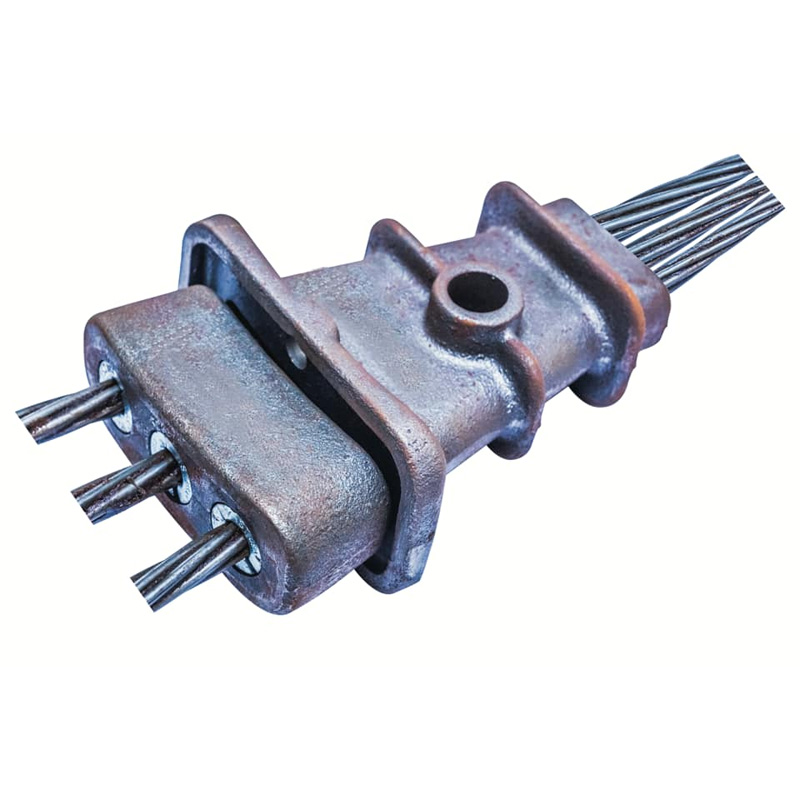
What Are Prestressed Steel Strands?
2025-05-24
Prestressed steel strands are high-strength steel wires twisted together to form a cable or strand, commonly used in the construction of prestressed concrete structures. They typically consist of 7 wires — one central wire surrounded by six helical wires — and are either uncoated or galvanized, low-relaxation or normal-relaxation, depending on the application.

Prestressed steel strands are high-strength steel wires twisted together to form a cable or strand, commonly used in the construction of prestressed concrete structures. They typically consist of 7 wires — one central wire surrounded by six helical wires — and are either uncoated or galvanized, low-relaxation or normal-relaxation, depending on the application.
Principle of Prestressing
The basic concept behind prestressing is to pre-load the concrete structure using tensioned steel strands before it is subjected to external loads. This method introduces a compressive force into the concrete, which helps counteract the tensile forces that occur under service loads.
How It Works:
Tensioning the Strands: Steel strands are stretched (tensioned) using hydraulic jacks.
Anchoring to Concrete: The stretched strands are anchored at both ends of a concrete element.
Transferring Stress: Once the concrete has reached sufficient strength, the tension in the strands is gradually released, transferring the force to the concrete.
Result: The concrete is compressed, improving its ability to resist tension, cracking, and deflection.
Key Properties
High Tensile Strength: Typically around 1860 MPa (or more).
Excellent Bonding with Concrete (especially when indented or with a rough surface).
Low Relaxation: Maintains tension over long periods.
Durability: Can be galvanized or epoxy-coated for corrosion protection.

Applications of Prestressed Steel Strands
Prestressed steel strands are essential in various fields of civil engineering and infrastructure. Common applications include:
1.Bridge Construction
Prestressed beams and girders
Box girders and cable-stayed bridges
Post-tensioned deck slabs
2.Buildings
Long-span floor slabs
Parking garages
High-rise buildings requiring seismic resistance
3.Railways and High-Speed Rail
Railway sleepers (ties)
Long viaducts and elevated tracks
4.Energy Sector
Wind turbine foundations
Nuclear containment structures
LNG storage tanks
5.Marine and Offshore
Wharf structures
Offshore platforms
Coastal retaining walls

Advantages of Using Prestressed Steel Strands
Improved Structural Efficiency: Reduces material use while enhancing load-bearing capacity.
Longer Spans: Enables construction of long spans without intermediate supports.
Enhanced Durability: Cracking is minimized, which improves lifespan and reduces maintenance.
Lightweight Design: Allows thinner and lighter concrete sections.
Cost Savings: Reduces construction time and overall material costs in large-scale projects.










